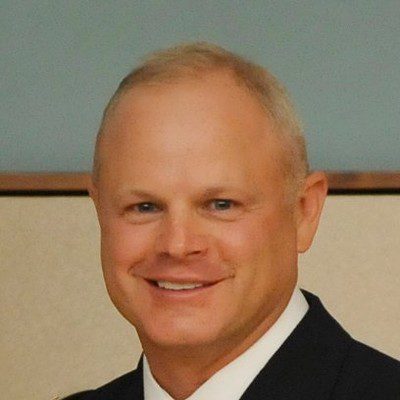
Space is getting increasingly crowded.
“Just a few years ago, there were hundreds of satellites in space,” said John Moberly. “Now, we’re at single-digit thousands of satellites, and licenses were recently approved for mega-constellations of 38,000 more. That’s not to mention all the foreign ones.”
Commercial satellite operators, and the defense and intelligence communities, all share a vested interest in making sure those orbiting objects don’t collide, or crash into the growing mass of debris that litters low-Earth orbit, or LEO.
As president of LeoLabs Federal, Moberly is part of a team offering a solution.
“Success in the contested and congested space environment starts with knowing where everything is,” he said. “We are building a dynamic map of everything that is moving in the LEO environment, and we can give collision-avoidance messages to our customers so that they can avoid those other satellites, as well as all that debris that’s up there.”
On the commercial side, LeoLabs boasts SpaceX and other commercial operators among its clientele. The company also supports the defense and intelligence communities, including U.S. Space Command and NASA, with space domain awareness.
There’s robust technology at the heart of this offering.
“We are building a global network of radars that can detect small objects in space,” Moberly said. “We’ll be able to watch everything, from various parts of the Earth. Then we apply our data analytics and data science to determine if it’s going to be threat to another system, or if there are anomalies — something that all of a sudden maneuvers in an unexpected way.”
To compete in this space, it takes a smart team — one focused on each of the sub-elements of the mission at hand, Moberly said.
“The natural tendency is to focus on the satellite itself, but we also have to think about the ground network, how we’re getting information back down and communicating it out as well as tracking the satellite and alerting to threats and collision avoidance — that’s where LeoLabs comes in,” he said. “All of those pieces have to come together. That makes it a systems-engineering problem: In space, you need the integration of all of these various elements in a specific and holistic manner.”
To meet that high bar, LeoLabs needs the right mix of talented individuals. Like other GovCons, the company must find these top players in a highly competitive marketplace. Moberly said his best recruiting tool is the mission itself.
“We are a disruptive, innovative startup,” he said. “It’s exciting for people to be a part of that.”
The increasing commercialization of space creates new business opportunities for the company. As satellites become increasingly a part of the landscape, LeoLabs seeks to claim its stake by completing work on its global radar network to track all objects in space.
“Within the next 5 years, we’ll have 24 radars around the world,” Moberly said. “That gives us less than a 30-minute revisit time of any satellite to know where they are at.”
At the same time, the company is looking to expand its capabilities into the medium-Earth orbit and geostationary orbit environment to provide threat alerts to key assets in those orbits — things like GPS.
LeoLabs also has plans to enable it to do missile tracking, a key capability the military is pursuing. With the rise of maneuverable and hypersonic missiles, this represents a potential growth opportunity going forward.
An Army veteran, Moberly has spent his professional career in and around the space domain. He started down this path after working for then-Col. Mark Milley, now a general and the chairman of the Joint Chiefs of Staff, who recommended Moberly for the new space operations career field. Moberly went to graduate school on Defense Department funding and that led to posting with the National Reconnaissance Office and other classified assignments in his military career.
“Nine months ago, I got approached by LeoLabs to lead the federal subsidiary in this innovative startup,” he said. “I really felt the attraction of leading something innovative and disruptive — it was just too good to pass up. I got our federal business plan and strategy in place to support our Series B fundraising round, and we closed that out in June with $65 million. So now, we’re moving out at an even more accelerated pace.”
Now, Moberly said, he is eager to show the government how the private sector can step up to support the emerging needs around situational awareness in the rapidly evolving space domain.
“The defense and intelligence communities really need to rely more on some of these innovative commercial solutions,” he said. “We’re developing very quickly, and that can be a key differentiator in the defense enterprise. That’s what is needed to defend against modern-day adversaries. We have the designs in hand and we can do this at a highly competitive cost point.”

